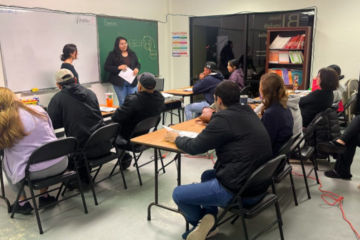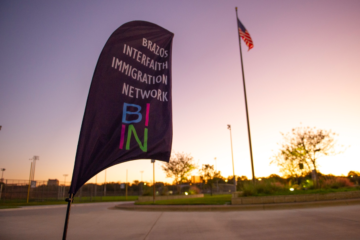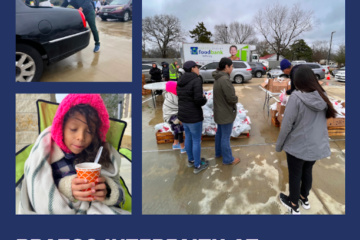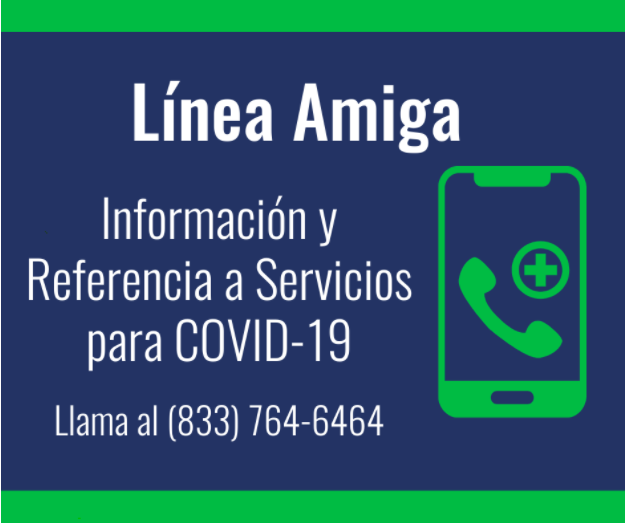
Calls have been coming in to Línea Amiga, the local Spanish-language helpline that was created to provide a way for people to ask questions and get information related to the COVID-19 pandemic. It was launched in late June 2020, with support from BIIN, Friends Congregational Church, the First United Methodist Church of Bryan, and a private donor. Thanks to a crew of bilingual volunteers from the community, the helpline is now functioning Monday through Saturday, from 12:00 to 7 pm.
So far, the majority of callers have wanted information about local options for getting tested for COVID-19, or for demonstrating that it is safe for them to return to work. Most do not have health insurance or an established medical provider, and this – along with linguistic barriers and other hurdles — makes the process of seeking any kind of healthcare all the more daunting. Although tests have become more widely available, most local providers require that patients be screened by medical personnel before they can be tested. If an uninsured patient has to pay out of pocket for both an appointment and the test and lab work, the cost at private clinics may be as high as $175 – $200. And many providers estimate that it currently takes at least 5-7 days, if not more, to have results. Given the cost of testing and the time it takes to get results, some callers have also wanted to know if there are other ways to demonstrate for employers that they can safely return to work.
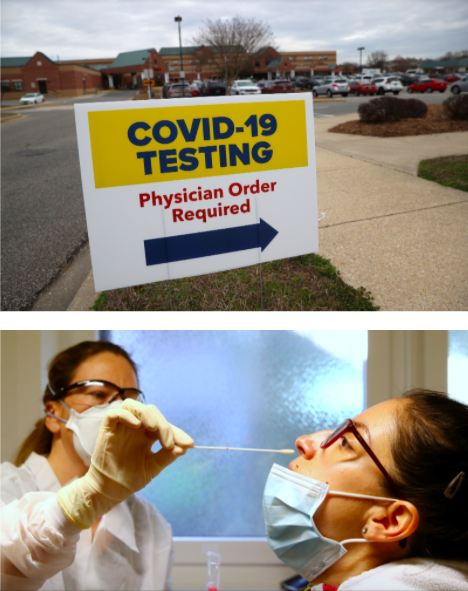
There are a few clinics in the Brazos Valley that serve primarily uninsured people, but they have also been hit hard by rising demand for COVID-19 tests. Consequently, people who are not already established patients may have to wait many days, if not weeks, to be screened and tested. Given the “public charge rule” instituted by the Trump administration and other changes to immigration policy, many immigrants are also afraid of the kinds of questions they may be asked by medical authorities. For all of these reasons, many of our neighbors find comfort in being able to speak freely with volunteers in Spanish: to ask questions and to get the information they need about what to expect and what it will cost, before approaching a local provider or talking with an employer about their return to work.
In addition to setting up and staffing the helpline, people involved in this endeavor have been working on parallel fronts. The Línea Amiga subcommittee formed by the BIIN Board includes board members Nancy Plankey-Videla, Maria José Perez-Patron, and Emma Avilez, intern Armando Escalera and staffer Janet Morford. They have worked to collect, compile, translate and update information about local COVID-19 testing, which is used to respond to callers and has also been posted on the BIIN website (along with other resources for people impacted by the pandemic).
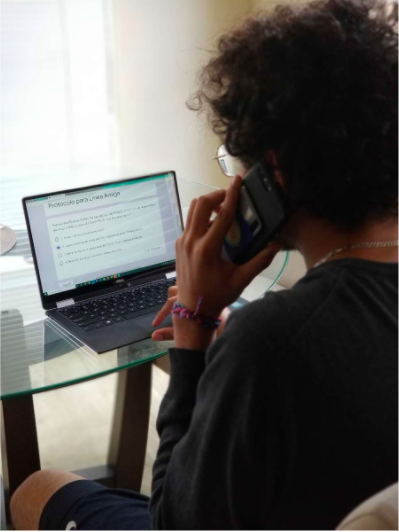
Emma Avilez hosts a regular weekend program on Radio Alegria, to which she has invited a series of local experts working in public health and patient care. Among other guests, Nancy Plankey-Videla and Maria José Perez-Patron have appeared on Emma’s show, to address common questions around testing, contact tracing, and access to healthcare, and to promote Línea Amiga. Nancy and Emma have also helped get the word out through La Voz Hispana and Brava. Most callers so far report that they heard about the helpline through local Spanish-language media outlets and by word of mouth.
But as the pandemic spreads, the need for current and reliable information continues. Please help us by spreading the word to people you know. If you are on Facebook, be sure to follow both BIIN’s and Línea Amiga’s pages, and share any relevant posts with your contacts. If you are able to speak in Spanish on the phone and are interested in volunteering with Línea Amiga, please contact Nancy Plankey-Videla at nanpv@hotmail.com . All BIIN supporters are encouraged to keep an eye out for further ways to support this initiative and to help ensure access to affordable health care for all in our community.
If you are interested in learning more about the hurdles that low-income families and immigrants face in accessing health care, here are some articles we recommend:
https://www.wgbh.org/news/local-news/2020/06/15/despite-the-pandemic-immigrants-in-mass-say-they-are-afraid-to-seek-medical-care Among other factors, fear that seeking help will lead to aggressive action by ICE often keeps immigrants from seeking health care when they need it.
https://www.texastribune.org/2020/07/30/texas-coronavirus-hispanic/ This article explores the disproportionate impact that the coronavirus pandemic has had on Hispanic people in Texas.
https://www.texastribune.org/2020/07/14/texans-health-insurance-jobs-pandemic/ Even before the pandemic led to increased levels of unemployment, Texas led the nation in numbers of people without health insurance.
https://www.pbs.org/wgbh/frontline/film/covids-hidden-toll/ This recent documentary examines the heightened vulnerability of immigrants and undocumented workers in the farm and meat-processing industries, given the conditions under which they work and live, and the lack of adequate health care.
